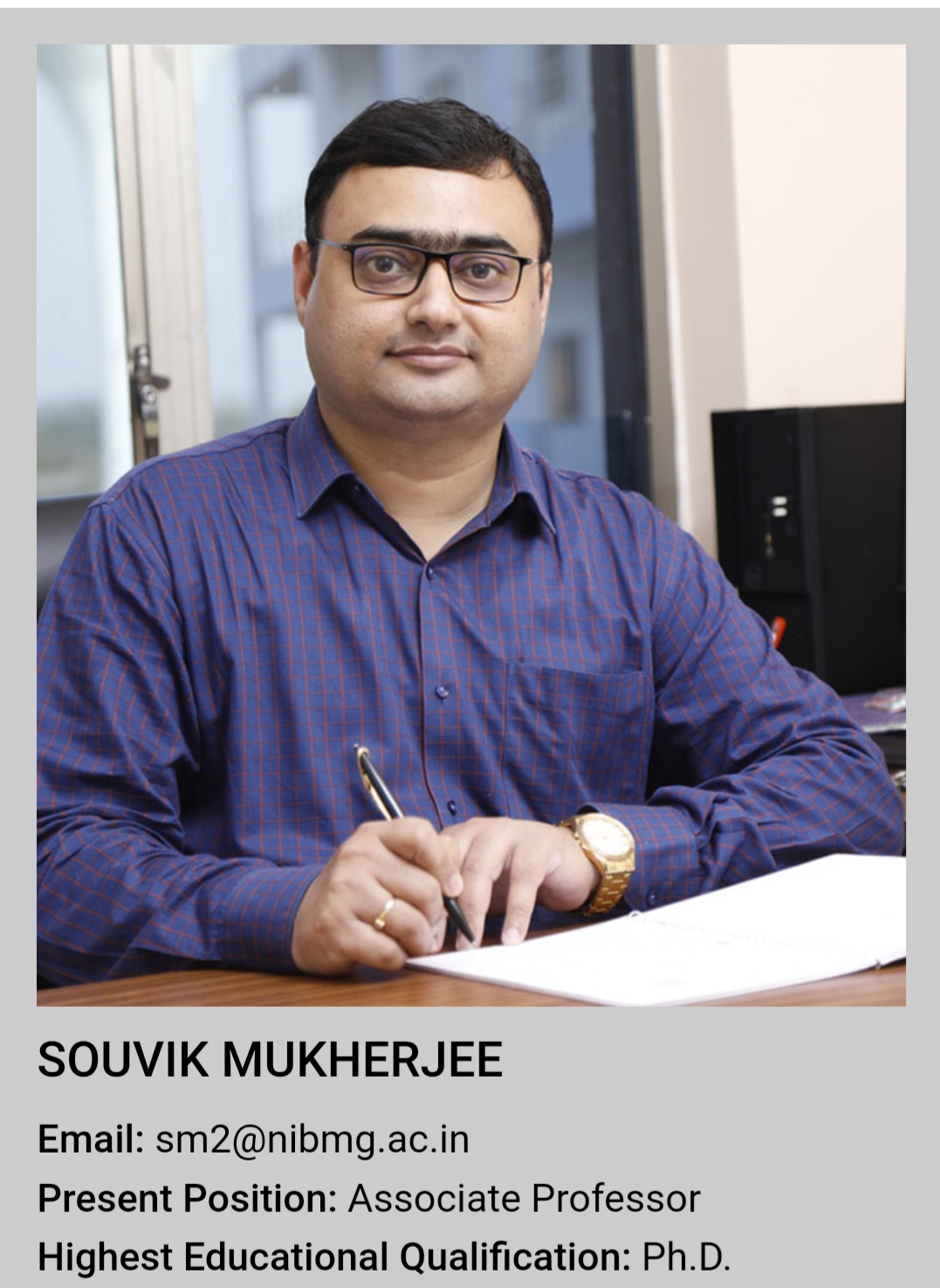Profile
The human microbiome is considered as the Second Genome and comprises of 50% of cells in the human body. The Human Microbiome Project (HMP) has unravelled the healthy human microbiome from different parts of the human body in Western populations. However, studies have clearly shown that there are significant differences in the composition and diversity of the healthy human microbiome in other world populations. The power of the human microbiome is recently being harnessed to understand its contribution in the maintenance of health and the changes that leads to the predisposition to various diseases in humans. In this context, the main research goal of our human microbiome research (HMR) team in NIBMG is to characterize the genomic and metagenomic factors that contribute to the predisposition and progression of chronic, inflammatory conditions/diseases in humans with special reference to Indian populations.
Current Focus Areas
(A) Role of Skin Microbiome in the Development of Chronic Inflammatory Skin Diseases: Our laboratory is first to characterize the Healthy Skin Microbiome in any Indian population showing significant differences from Western Skin. Currently we are involved in deciphering host-microbiome interactions in inflammatory skin conditions like Psoriasis and Atopic Dermatitis
(B) Role of Maternal Microbiome in Adverse Pregnancy Outcomes: Our laboratory is part of a multi-institutional, multi-omics consortium on preterm birth, the GARBH-Ini cohort. In collaboration with THSTI, we aim to identify significant changes in maternal microbiome leading to preterm birth in Indian women by metagenomics and metatranscriptomics approaches.
(C) Host-Microbiome Interactions Influencing Child Growth: In collaboration with CHRD-SAS, a WHO collaborating centre for research, community-based action and program development in child health in India, we aim to characterize the host and metagenomic factors of early infancy growth failure in children in the first 1 year of life
(D) Development of Antibiotic Resistance in Chronic Diabetic Foot Ulcers (DFU): About 25% diabetic patients develop chronic DFUs during their lifetime. In collaboration with IPGME&R, Kolkata currently we are studying the development of polymicrobial biofilms and antibiotic resistance in chronic DFUs by metagenomics sequencing, ex vivo and in vitro assays
Selected Publications
Nath S, Sarkar M, Maddheshiya A, De D, Paul S, Dey S, Pal K, Roy SR, Ghosh A, Sengupta S, Paine SK, Biswas NK, Basu A, MUKHERJEE S* (2023) Upper respiratory tract microbiome profiles in SARS-CoV-2 Delta and Omicron infected patients exhibit variant specific patterns and robust prediction of disease groups. Microbiology Spectrum. https://doi.org/10.1128/spectrum.02368-23 [I.F. = 9.043]
Mukherjee, P., Paul, S., Dutta, T., Nath S, Ghosh B, Chatterjee D, Mukhopadhyay S, MUKHERJEE S* (2023) Nasal MRSA carriage is a risk factor for development of antibiotic resistance in diabetic foot ulcers and is significantly higher than diabetic and non-diabetic individuals without foot ulcer. BMC Infect Dis 23, 729 (2023). https://doi.org/10.1186/s12879-023-08673-3 [I.F.=3.7]
Kumar S, Kumari N, Talukdar D, Kothidar A, Sarkar M, Mehta O, Kshetrapal P, Wadhwa N, Thiruvengadam R, Desiraju BK, Nair GB, Bhatnagar S*, MUKHERJEE S*, Das B*; GARBH-Ini Study Group (2021) The Vaginal Microbial Signatures of Preterm Birth Delivery in Indian Women. Front Cell Infect Microbiol. 13:622474; https://doi.org/ 10.3389/fcimb.2021.622474 [I.F.: 6.073]
Nath, S., Kumari, N., Bandyopadhyay, D., Sinha, N., Majumder, P. P., Mitra, R., & MUKHERJEE, S* (2020) Dysbiotic Lesional Microbiome With Filaggrin Missense Variants Associate With Atopic Dermatitis in India. Front Cell Infect Microbiol. 10, 570423. https://doi.org/10.3389/fcimb.2020.570423 [I.F.: 6.073]
MUKHERJEE S*, Mitra R, Maitra A, Gupta S, Kumaran S, Chakrabortty A & Majumder PP. (2016) Sebum and Hydration Levels in Specific Regions of Human Face Significantly Predict the Nature and Diversity of Facial Skin Microbiome. Scientific Reports 6, 36062;doi 10.1038/srep36062. [I.F.: 4.996]
